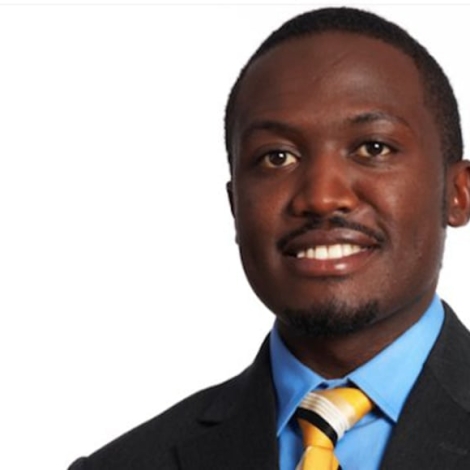When Chris Ategeka delivered two of his bicycle ambulances to a village in rural Uganda, the vehicles were so much in demand that riders transported 27 expectant mothers to the nearest clinic and back in just the first two weeks. Life expectancy is low in Uganda at 68.58 years in 2022, ranking the country 180 out of 195*. Part of the problem is the lack of doctors. Per person, Uganda has less than one-tenth of the doctors found in a developed nation like the United States. And part of the problem is the lack of transportation and medical supplies.
Ategeka’s bicycle ambulances are simple covered trailers hauled by bikes, mopeds or motorcycles. And they are the cornerstone in a quickly branching business that is using creative, low-cost technologies to solve Uganda’s trouble with health care access. Rides for Lives (formerly CA Bikes) has delivered hundreds of bike ambulances, but the increased traffic to the clinics presented a new problem: long lines.
The more you wait, the more likely that it will never happen. So, the time to start a social enterprise is now – Chris Ategeka
In response, the Rides for Lives team launched a mobile clinic program, offering medical services out of a bus. Ategeka designed and built the clinic and equipped it with a doctor, a lab and a pharmacy. The bus makes a weekly circuit, parking outside of community markets. Once again the demand was immense and another problem arose: The clinic repeatedly ran out of medical supplies.
To solve it, Ategeka has created a delivery system using two aerial drones. One is a quad-copter, the other a fixed wing, and they can fly for up to one hour carrying 2.5kg (5lbs) over 40km (25 miles).
Now Ategeka is eying a big scale up. In the next two years he hopes to build at least 100 mobile clinics.
Ategeka was born in Uganda, but he was raised in a foster home in the United States after losing his parents to AIDS. We told some of his compelling story earlier this year and now we’re pleased to have spoken with Chris Ategeka again to ask him five questions.
E4C: Story time… Would you tell us about a time when you saw the impact that your work is having?
CA: We have a product called Mobility that’s for people with disabilities. It’s a four-wheeled moped, but it also has a little mobile shop on it. People with disabilities can use it to go somewhere, like to a busy street, and sell products and support themselves and their families. For 30 years, one particular gentleman had never left a certain radius from his house because of his lack of mobility. When we gave him one of the products, just being able to ride from his village to other places brought him to tears and it almost brought me to tears. Now I heard that he is able to make up to $300 just in the first two months that he had it selling merchandise. I was very proud.
E4C: What advice do you have for social entrepreneurs starting their first business?
CA: There’s no one-size fits all type of formula for how to start a social business. I can say one thing though: in order to get started there’s no such thing as the right time, or waiting for the right type of education, or this, that and the other. The more you wait the more likely that it will never happen. So, the time to start a social enterprise is now. And it’s not going to be easy. You just got to get started and you deal with the excitements that come with it.
E4C: Can you offer any ideas for start-ups that you would like to see in Uganda or elsewhere where there’s a need?
CA: A general idea is that there’s a need for user-centric designs. Building a product, but not the old-fashioned way where you come up with a solution and go to users and say, Hey you guys need this, and then find out the hard way that they actually don’t.
I feel like right now lots of people are trying to create the next Facebook, the next software business and then become billionaires, but very few people are actually building products that are centered on the users. Actual physical products. If I had any advice, I would say to start with the users and design something that they know that people will want and pay for. It’s asking the right questions.
If you’re not passionate enough about it, it’s not going to last. You should be able to do it with or without getting paid because you care about it.
There are three major things: You as a person have the right kind of passion. You really, really care about the issue that you’re going to solve. If you don’t you’re not going to be able to bring it to life. The second thing is to solve a huge problem, where lots of people are going to be able to use your product and potentially pay for it. The third thing is you have to go for a huge market. If it’s a small segment of people then investors and users might not find it appealing enough to be a part of it. But if it’s solving a global problem, you know, the cure for cancer, then lots of people will want to join hands with you and help you bring it to life.
E4C: How does your engineering experience inform your work?
CA: Engineering teaches you how to solve problems systematically. You need to do A before you do B. You adapt to your environment and meet your customers’ needs. That kind of problem solving is something that I’ve learned from engineering school.
E4C: What is an important lesson that you’ve learned from one of your mentors?
CA: You have to stick to your guts. Lots of people have advice and lots of people come with money and want to sway you and push you in directions that you actually did not intend to go. But you are the one that came up with the solution and you have a good idea of where to go. Take advice, but be able to strain through the advice that will build what you envisioned and where you wanted to go in the first place. As opposed to just taking everything and changing your ideas.
One thing I’d like to emphasize is that it’s all about the passion. If you’re not passionate enough about it, it’s not going to last. You should be able to do it with or without getting paid because you care about it. There’s so many ways to get inspiration and to get your passion deep enough. If you have the right kind of passion and determination then it will happen.
*The number of countries in the world is tricky to calculate, but 195 is one of the numbers that has widespread backing.

